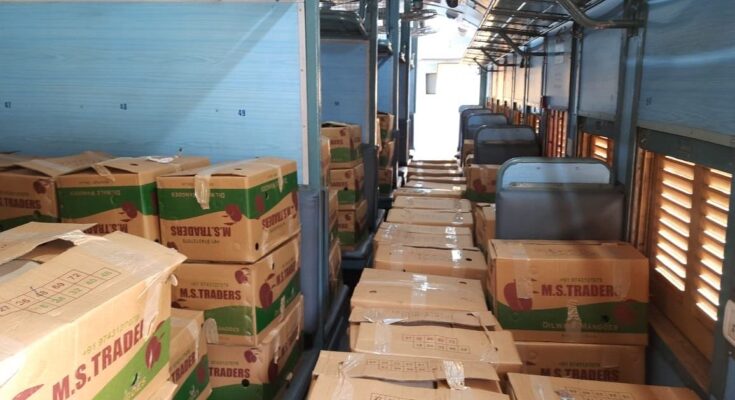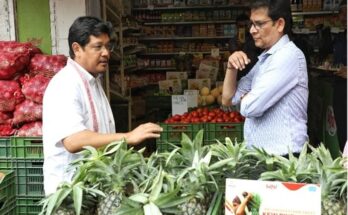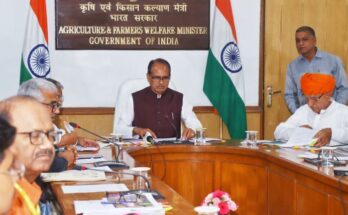Indian Railways, with its pan-India network, forms an integral part of the government plan to raise incomes in farm sector by encouraging transportation by rail. Introduction of Kisan Rails have given farmers wide access of Indian markets. Kisan Rails have so far carried 2.7 lakh tonnes of consignment. Till now, 60 routes have been operationalised.
Indian Railways have been relentlessly pursuing with various stakeholders – including Ministry of Agriculture & Farmers Welfare, state governments (including departments of agriculture, horticulture and fisheries), and local bodies, agencies and mandis to plan roll out of Kisan Rail services.
Salient features of Kisan Rail
- Enables movement of perishables including fruits, vegetables, meat, poultry, fishery and dairy products from production or surplus regions to consumption or deficient regions,
- Speedy movement ensures minimum damage during transit,
- Enables farmers to utilise the vast railway network to gain access to distant, bigger and more lucrative markets,
- 50 percent subsidy is given in freight (being borne by Ministry of Food Processing Industries under ‘Operation Greens – TOP to Total’ scheme) for transportation of fruits and vegetables,
- Based on the concept of multi commodity, multi consignor, multi consignee, multi stoppages, time-tabled trains – to help small farmers with lesser produce also to transport their consignment without any middleman,
- No minimum limit on quantity that can be booked, enabling even small and marginal farmers to reach bigger and distant markets,
- End-consumers (at bigger cities and consumption centres) get fresher produce at cheaper prices, due to reduction in transportation time as well as costs.
In compliance to the announcement made in Union Budget 2020-21, Kisan Rail trains have been introduced by Indian Railways – to move perishables and farm produce (including fruits, vegetables, meat, poultry, fishery and dairy products) from production or surplus regions to consumption or deficient regions.
The first train under Kisan Rail scheme – between Devlali (Mah) and Danapur (Bihar) – was flagged-off by Minister of Railways and Commerce & Industry Piyush Goyal and Minister of Agriculture & Farmers’ Welfare Narendra Singh Tomar on 07.08.2020. This train has subsequently been extended to run between Sangola (Mah) and Muzaffarpur (Bihar).
The 100th trip under Kisan Rail scheme – between Sangola (Mah) and Shalimar (WB) – was flagged-off by Prime Minister Narendra Modi on December 28, 2020.
Till June 18, 2021, a total of 850 trips of Kisan Rail trains were operated on 60 routes, transporting more than 2.7 lakh tonnes of consignments. The monthly performance of these trains during 2021 has been as under:
January 2021 – 82 trips (32,332 Tonnes)
February 2021 – 128 trips (41,665 Tonnes)
March 2021 – 133 trips (40,695 Tonnes)
April 2021 – 127 trips (39,518 Tonnes)
May 2021 – 173 Trips (55,300 Tonnes)
June (upto 18th) – 93 Trips (32,542 Tonnes)
Kisan Rail trains are run on time-tabled paths, and are being monitored for punctuality as well as to ensure that perishable commodities reach their destinations within due time, and also that Indian Railways’ resources are utilised in the most optimal manner.
Main farm-produce transported via Kisan Rails include oranges, onion, potato, banana, mango, tomato, pomegranate, custard apple, capsicum, chikoo, carrot, among others.
Pricing and Subsidy: All the Kisan Rail train services are being charged at ‘P-scale’ of Parcel tariff.
Under ‘Operation Greens – TOP to Total’ scheme of Ministry of Food Processing Industries (MoFPI), 50% subsidy in freight is granted on transportation of fruits and vegetables through Kisan Rail trains services.
Since the introduction of this subsidy scheme (with effect from October 14, 2020) till June 15, 2021, an amount of Rs 52.38 crore approximately has been disbursed as subsidy through Kisan Rail.




